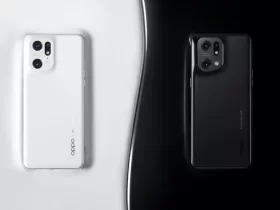No products in the cart.

Some devices on the Android operating system did not have the information for daylight saving time cancellation. You must deselect the ‘Automatic date and time’ option.
The clock on some cell phones in the Android operating system was automatically delayed by one hour at midnight on Sunday (21).
Internet users reported on social networks that they woke up late due to the automatic change and the term “Brasília time” was among the most searched on Google.
The devices may not have the information to avoid the change that would be made if there was daylight saving time, which was canceled by the government of Jair Bolsonaro in 2019. It would end this Sunday, if it was still in effect.
This automatic time change happens mainly on devices with versions prior to Android 10, which was launched by Google in 2019.
Last November, users had already reported that their cell phones advanced the watch. This was because, until 2017, daylight saving time started in October. In 2018, the last time he was adopted, he started on the 1st Sunday of November and ended in February.
Learn to correct:
On Android devices
Touch the “Configure” icon;
touch the option “Date and time”;
uncheck the option “Automatic date and time”;
manually set the correct time.
The devices that do not change the time have already been updated by the manufacturers, or else they are following rules sent by the networks of the telephone operators.
The change in Brazilian daylight saving time impacts the database of the Internet Number Assignment Authority (IANA), responsible for passing the information to smartphones.
DST
In Brazil, daylight saving time was first introduced in the summer of 1931/1932, by then President Getúlio Vargas. Its debut version lasted almost six months, running from October 3, 1931 to March 31, 1932.
The following summer, the measure was adopted again, but then it began to be in non-consecutive periods. First, between 1949 and 1953, then from 1963 to 1968, returning in 1985 until April 2019, when it was revoked by decree.
The period of validity of daylight saving time was variable, but, on average, lasted 120 days.
Worldwide, differentiated hours are adopted in 70 countries – and reach about a quarter of the world population. Daylight saving time is adopted in countries like Canada, Australia, Mexico, New Zealand, Chile, Paraguay and Uruguay.
What’s your reaction?
Love0
Sad0
Happy0
Sleepy0
Angry0
Dead0
Wink0







